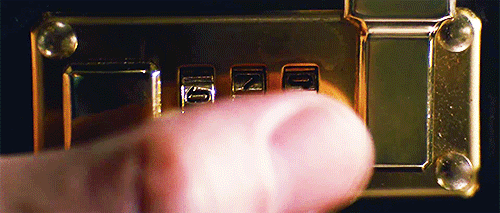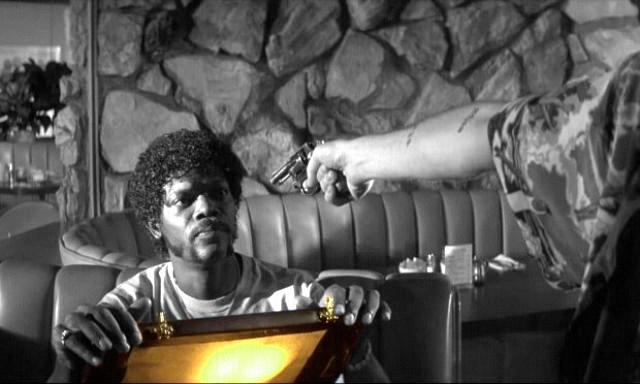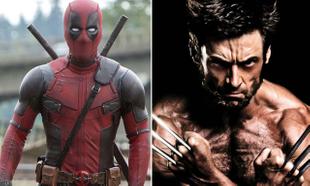The briefcase in 'Pulp Fiction' is, without doubt, one of the most well-known MacGuffins in film history.
A MacGuffin, for those who don't know the definition, is an object that propels a story forward but, realistically, has no bearing on the story whatsoever. Examples would be the rug in 'The Big Lebowski', the Heart of the Ocean necklace in 'Titanic' or - as we're now discussing - the briefcase in 'Pulp Fiction'. It could literally be anything, but it's what pushes the story along. What's made the briefcase so interesting in 'Pulp Fiction' is that nobody's really sure what it is.
For the record, Quentin Tarantino has said that it's whatever the audience wants it to be. Of course, that hasn't stopped internet sleuths and conspiracy theorists from drawing huge conclusions and theories from a finite amount of information. The prevailing theory is that the briefcase is Marcellus Wallace's soul and that he sold it to the Devil in exchange for his prominence and success as a gangster. The evidence? The scar on the back of his head, which is clearly visible throughout most of the film, is where his soul was taken from. Not only that, the combination on the briefcase was 666 - the number of the devil.

This theory came about seemingly because Chinese culture has it that the soul is removed from the back of the head. There was also a rumbling that the novelisation of the film claimed it was the soul as well. Of course, there was no novelisation of 'Pulp Fiction' and we were unable to find any reference to souls being removed from the back of the head in Chinese culture, or any culture for that matter. Out goes that one.
For his part, Roger Avary, who has a Story By credit on 'Pulp Fiction', addressed the soul theory in an interview with Roger Ebert in 1997, saying that "somebody had the bright idea (which I think was a mistake) of putting an orange lightbulb in there. Suddenly what could have been anything became anything supernatural."
The next theory was that it was diamonds. This theory, believe it or not, is the most logical one. In 'Reservoir Dogs', the robbery centres around a consignment of diamonds that were stolen from a jewellery shop. In the early stages of writing the screenplay, Quentin Tarantino and Roger Avary had intended the briefcase to contain the diamonds from 'Reservoir Dogs', thus furthering another theory that all of Tarantino's films are set in the same universe. However, this idea was quickly dismissed as being "too predictable" and instead preferred to leave the answer open-ended.
The other theory, which sort of relates to the diamonds theory, is that it's Elvis' gold suit from 'True Romance'. Quentin Tarantino, as we know, wrote the screenplay to the Tony Scott-directed True Romance. The film features a scene where Christian Slater's character is visited by an apparition of Elvis, who wears a gold blazer. Again, that also ties it into the theory that all of Tarantino's films are connected together - even if 'True Romance' wasn't directed by him. Further proof of the Elvis theory is when Mia Wallace and Vincent Vega turn up at the '50s diner Jack Rabbit Slims, she describes Vincent Vega as an 'Elvis' man. However, this doesn't hold much water as that mention of Elvis was in reference to a deleted scene where she and Vincent talked about the difference between The Beatles and Elvis.
Another theory still is that the briefcase contains - get this - an Oscar. This might be a little bit more tongue-in-cheek, but the idea is that Marcellus Wallace stole the Oscar for his failed actress wife, Mia Wallace. Furthermore, the Oscar is for Quentin Tarantino's efforts. This theory, we'd add, is a joke that circulated when the film was originally released and gathered a bit of steam in later years.
Again, for what it's worth, all of these theories are essentially bunk. There's supposed to be nothing in the briefcase except whatever we imagine, making it the perfect MacGuffin. Plus, is that what the film is really about? A suitcase? Of course it isn't. It's about the interplay between the characters, the fantastic soundtrack, Quentin Tarantino's weird feet fixation, all of it.
The briefcase wasn't the focus of the film, but it's what drove the film on. Plus, isn't it better when we don't know?









































































